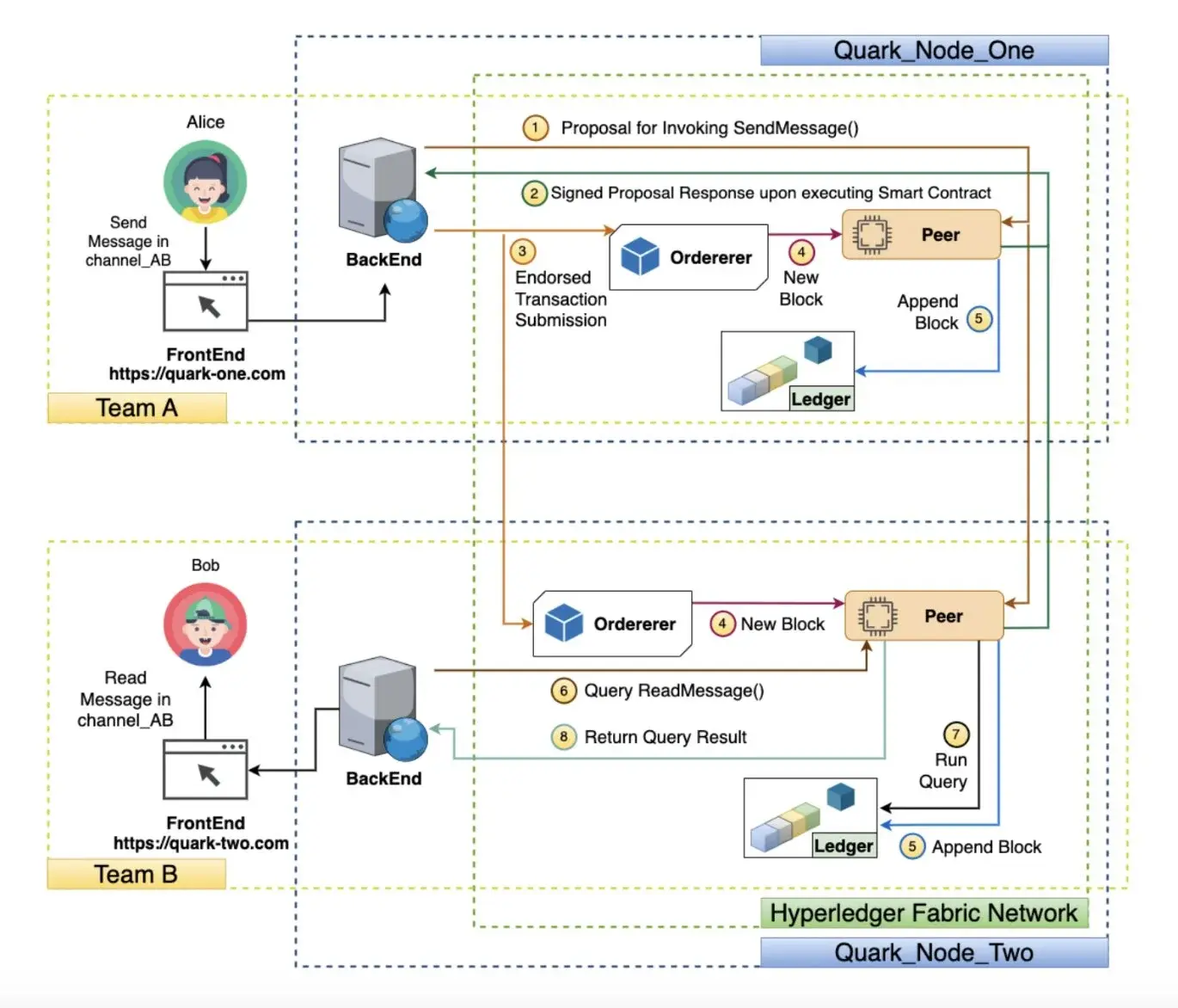Researchers from several institutes worldwide recently developed Quarks, a new, decentralized messaging network based on blockchain technology. Their proposed system could overcome the limitations of most commonly used messaging platforms, allowing users to retain control over their personal data and other information they share online.



It seems like most of those concerns are handled by other means, like actual humans checking Voter IDs, etc. There would be no way to link an individual to their vote if the vote is generated by the voting machine, not the voter. For example, a machine could bundle votes together, generate its own block every five minutes, and send them up to a central server which would bundle all those blocks into a much larger block. And that would be the immutable ledger. That way if someone were trying to change the results, they could only alter a very small amount of votes, and because of how blockchain works, it would be obvious where the cheating occurred (in the chain).
Without some sort of zk mechanism, the machines “bundling” local votes still know the votes. If you have a small district, then it may be possible to figure out who voted for who.
Trust me, there’s been a lot of research into doing electronic voting and generally the consensus is that a “regular” blockchain would be a terrible choice.
Personally I don’t trust electronic voting at all and think paper ballots are the way to go
I agree, but we’re probably in the minority.
Yeah it seems like people are generally inclined to trust electronic voting more than paper ballots, when the reality is that the vast, vast majority of electronic voting systems are so utterly borked that it’s possible to pretty trivially change election results, often without leaving any trace of the tampering.
The Hursti Hack is the classic example, and by no means the only one. Incidentally the person that hack’s named after, Harri Hursti, is a family friend. He caught me trying to crack passwords on his UN*X shell box (with a dictionary cracking tool, probably
Crack) in the early 90’s when I was a teenage nerdlet with too much free time and not enough brains 😅If you need the person to walk somewhere, physically show a voter ID to someone to be let into a private area where they receive their private key in a machine for them to then vote remotely, wouldn’t it be easier just to remove the entire technology part of the equation and just make them put a piece of paper inside an envelope in that private area, so that they can then put that piece of paper into a public ballot box right after?
Electronic voting is a bad idea in general, blockchain isn’t going to fix that.
I wish I could find this again, but I read an old article where someone proposed paper ballots that are given a unique ID number. They are marked in the middle by the voter, then scanned to be counted electronically, then part of the ballot with a copy of the ID number is kept by the voter. The rest of the ballot is retained in the ballot box. Later on, if the voter wants to make sure their vote was counted correctly, they can go to a website, enter the ID number and it will display the votes for that ID. This is an electronic counting system with a physical paper backup that’s verifiable by the voter. I like that system. I was only bringing up blockchain because OP asked about possible uses for that tech.
But you don’t want that either. This opens up a way for people to demand others to prove they voted a certain way - I.e. abusive family could force all family members to vote the same. Paper ballots shouldn’t ever be identifiable back to anyone.